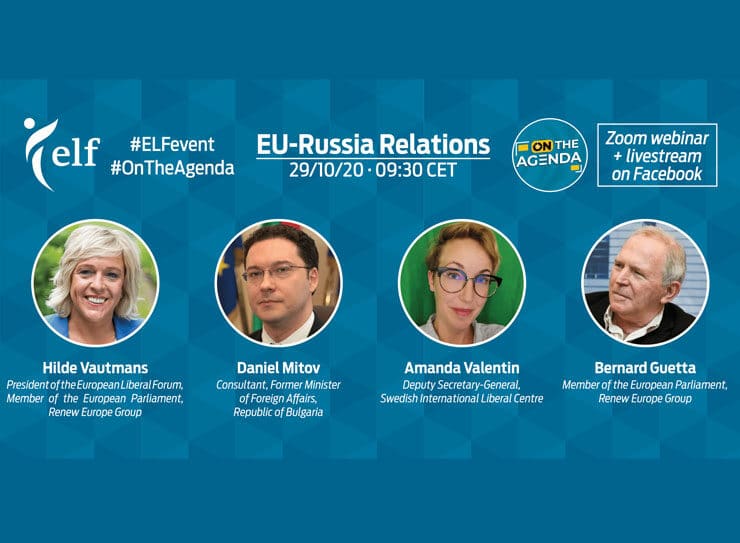9 November 2020
EU and Russia at a crossroads
EU-Russia relations have never been an easy affair, especially following years of conflict in the Eastern Partnership countries. As Europe’s […]

EU-Russia relations have never been an easy affair, especially following years of conflict in the Eastern Partnership countries. As Europe’s […]

EU-Russia relations have never been an easy affair, especially following years of conflict in the Eastern Partnership countries. As Europe’s biggest and most populous neighbour, is it realistic to expect any improvement in the relations between the two blocs?
Relationship status: Complicated
It is a false assumption to assume that EU member states perceive Russia in the same way. “The perception of the threat of Russia is not the same in all parts of Europe” mentions Bernard Guetta, MEP of Renew Europe Group. EU external relations have always been an act of balance between weighted differences in Member States’ individual strategies, and Russia is no exception.
How can the EU, master of multilateral relations, engage with Russia without threatening its own model? The Kremlin views relations more cynically and a constructive approach is seen as naïve”, judges Daniel Mitov, Former Minister of Foreign Affairs of Bulgaria. “The dialogue has to be there, but it needs to take a new shape, and the EU needs to be more assertive moving forward”. Recently, Vladimir Putin’s support for Alexander Lukashenko in Belarus, and the poisoning of Putin’s opponent Alexei Navalny, have ignited the debate over new sanctions towards Russia.
Russia is not (just) Kremlin
The support of the regime is very fragile. But even if there are alternatives, they have no chance of winning. “We need two policies for Russia: one for the regime and one for the Russian people. Europe should facilitate visas for Russian people, to show we are open and modern”, argues Amanda Valentin, Deputy Secretary-General of Swedish International Liberal Centre.
Ms Valentin believes that relations between the EU and the Russian government will never normalise without democracy. She argues that, despite appearances, the current government led by Vladimir Putin does not have strong standing among people, since in previous elections a small number of voters showed up; and the votes in favour of the government were inflated. “The EU should raise awareness amongst the Russian population that democratic elections are possible and necessary”, concludes Ms Valentin.
Russia: The hollow king (?)
The fragility of internal support for the Russian government matches the country’s external influence as well. “Russia bases the strength of its international relations on impunity; breaking the trust and goodwill which is the basis of international law, without any real consequence,” mentions Mr. Mitov.
However, Mr Guetta assesses that Russia will have to work with the EU, if not out of will, then out of necessity. “They have three possibilities for main partners: The United States, depending on the outcome of elections, China, and, finally, the European Union. They would need to provide guarantees for the independence of Georgia, Ukraine and other former members of the Soviet Union, but in the end, it is in not impossible”.
This article is based on the latest On the Agenda webinar series, organised by the European Liberal Forum, on the topic of EU-Russia relations. See the full discussion here.
The next On The Agenda focuses on the US elections. While history is in the making, we focus on policy beyond politics and look at the day after. Save a seat and register here.